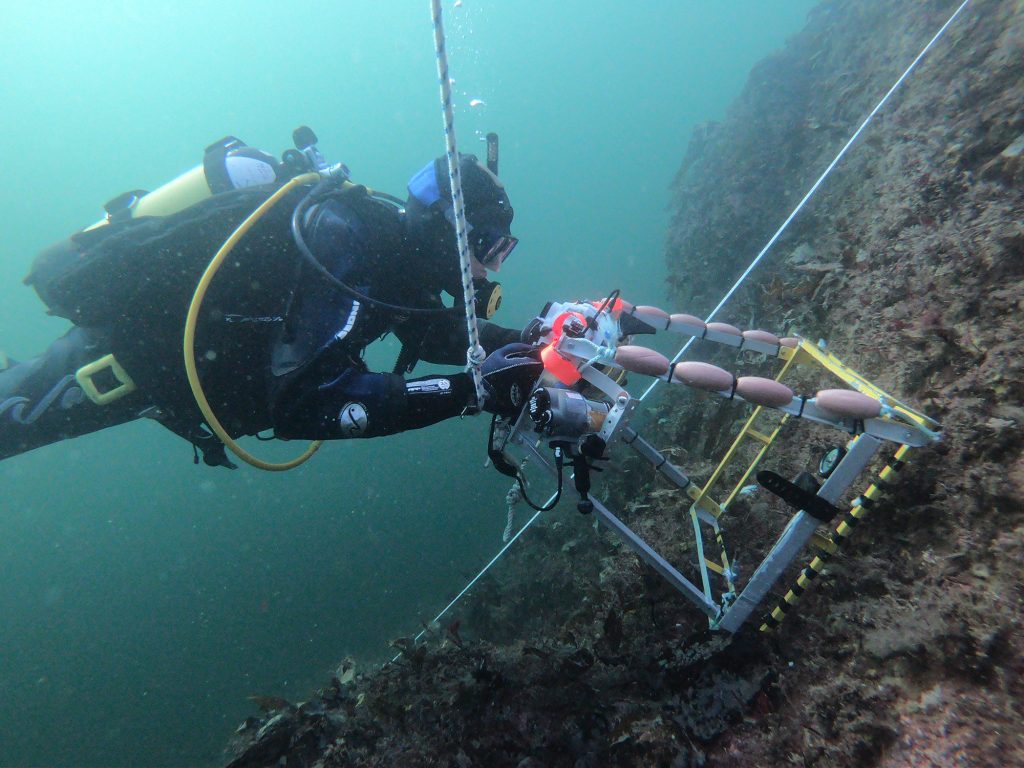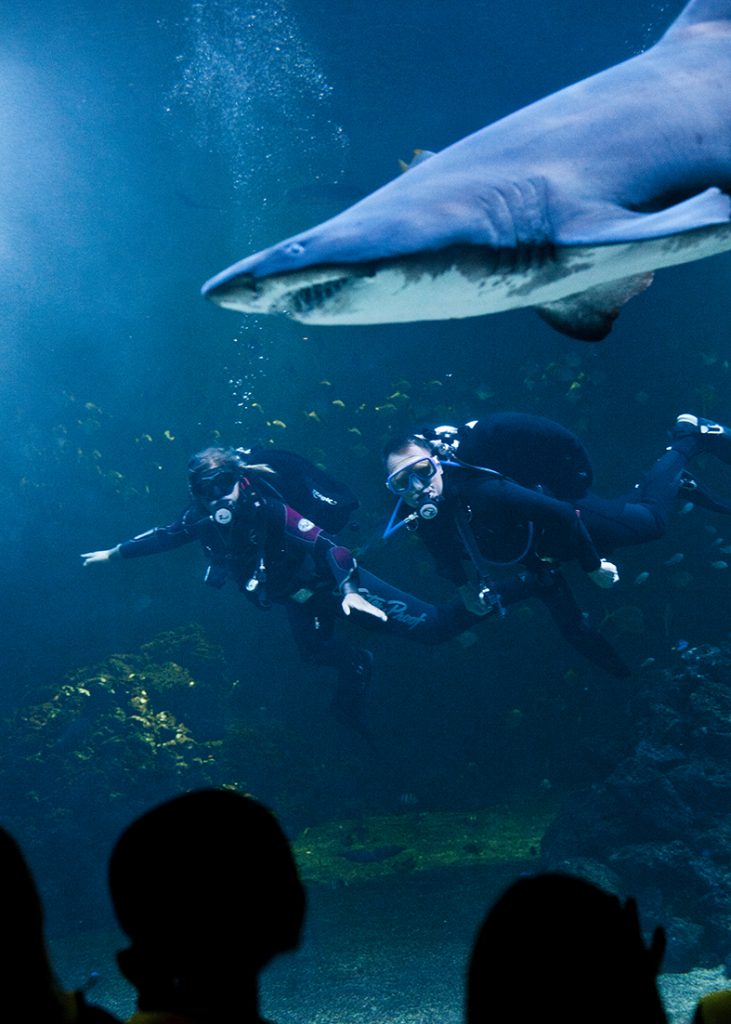The concept of scientific diving includes diving that is needed to support research and education as well as for the care and preservation of the natural and cultural environment. The diving is usually led by people trained in relevant scientific disciplines, but the divers can sometimes be contractors who have been trained in special methods needed for occupational diving. The purpose of the dive is to obtain information and data through e.g. performing empirical experiments, observations, photography, filming, mapping, measurement, inventory and collection of animals, plants, sediments, etc. In Sweden, scientific diving work is conducted mainly at state, regional and municipal units, such as universities, museums or county administrative boards. Science diving is subject to the Work Environment Act and includes, among others, science divers, dive leaders, project managers, employers (eg heads of department, lab managers) and administrators.
Scientific diving is used as a cost-effective way to conduct field research and can support advances in aquatic research through innovative, and targeted methods for selective sampling and complex experimental underwater studies. Scientific diving is particularly effective in coastal areas but also in remote environments, such as polar regions. Scientific diving can be used for global, regional and local scientific issues.
Scientific diving is also an important monitoring tool to support policy needs, in particular to address the requirements of monitoring and other action programs established by the Marine Directive. Scientific diving is also in line with international demand for the design of responsible, resource-efficient and sustainable research methodologies in Europe.

Diving close to science
A lot of diving work is not as clearly linked to research, education or care and conservation of the natural and cultural environment as in scientific diving work, but still fall occur under similar conditions (i. non-hard hat, using SCUBA). Examples are work in an aquarium environments at public aquariums, collection of animals or plants for sale and underwater filming (both for documentaries and feature films). The diving can be commercial and conducted by private or socially owned companies / companies. The diving work can also be non-commercial and performed by an authority or similar organization.
